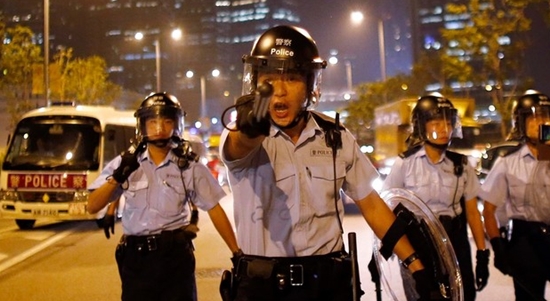
The socialist paper and website TheMilitant.com had better be careful or it may start making the connection between political freedom and economic freedom.
Militant Roy Landersen writes that even before China’s rulers “extended their repressive grip over Hong Kong” in 2024 by imposing the new National Security Bill, Article 23, more than 60 organizations had been forced to disband “including trade unions, media outlets and opposition parties.”
Dozens, from students and journalists to political figures, have been arrested and tried. Over 1,000 are imprisoned.
Hong Kong’s close links to mainland China—the city’s main attraction for capitalist investors—are now becoming more of a liability, as the growth of China’s state-capitalist economy slows. Hong Kong’s stock market has lost nearly half its value in three years. Dozens of mainland real estate developers have defaulted on bonds issued in Hong Kong, creating huge losses. Tens of thousands of Hong Kong residents have emigrated. Many more say they plan to.
If Hong Kong’s “main attraction for capitalist investors” has always been its links to the mainland, why would anybody especially desire to invest in Hong Kong when he could just go to the mainland a few miles away and invest there? In fact, more or less until 2020 and passage of the first sweepingly repressive National Security Law, Hong Kong was especially attractive for capitalists and others seeking not only political freedom but also economic freedom.
Landersen is about an inch away from realizing that the economic freedom part of freedom is what primarily attracted investors to Hong Kong. And that Hong Kong’s erstwhile economic freedom, now demoted to “state capitalism,” i.e., fascism, has been as much crunched by the 2020 and 2024 crackdowns as political freedom.
He can see that the Hong Kong stock market has been chopped in half since 2020. He maybe also sees that this has something to do with many businesses and many productive freedom-loving citizens running away. The insight is closing in.
Do the same people who want to speak freely want to be able to work for a living and run businesses without Chinese Communist Party mandarins breathing down their necks? Do the capacities and ambitions of independent-minded individuals tend to significantly differ from those of the drones who shrug their shoulders at CCP crackdowns and say “As long as I keep my mouth shut and do what I’m told, everything will be fine”?
Some observers of China propose that we’ve now seen Peak China and that China is maybe going to be in economic decline from now on (history is always ending just before it pops back). But everyone not bent on coverup seems to agree that China is currently facing big economic problems.
At the Organiser website, Ameya Kulkarni says that “some Chinese scholars” believe that the Chinese people wouldn’t think that things were so bad but for western propaganda. According to them, “the growing pessimism in domestic public opinion is being worsened by a ‘large-scale public opinion offensive’ launched by the US, in the past few months, under the banner of ‘Peak China’, implying that China has reached the height of its economic power and can only decline from hereon.”
The Chinese government would prefer that nobody notice China’s economic troubles. Its Ministry of National Security is urging people to reject the “discourse trap” or “cognitive trap” of the view that China is in decline. China would also like everybody to ignore indications that increasingly restrictive CCP policies under Xi Jinping may have something to do with the slump.
The assertions that the current Chinese government under Xi Jinping has been prioritising ideology and security over the economy, concentrating power, favouring inefficient state-owned enterprises, fatally suppressing private enterprises, and thereby “turning back the clock” on economic policy and reform and opening up—have been resonating well with the public in China. Weary of the trend of “advancement of the state and the retreat of the private sector” under President Xi, communist China seems to be finding solace in some unexpected quarters—namely “Milei’s prescription”, the radical economic reform agenda recently prescribed by the new right-wing “libertarian” President of Argentina, Javier Milei. No wonder there is panic building up in government circles in China over growing differences or increasing distrust between Chinese society and the government, the people and the leaders, which can potentially endanger CPC’s regime stability.
A Milei prescription? It’s a nice dream, but China won’t be flipping to the Argentine president’s “anarcho-capitalist” approach anytime soon. Kulkarni doesn’t tell us who in China is suggesting that to really turn things around, China needs to implement a policy of consistent laissez faire capitalism and eliminate the “state” part of state capitalism. We’re guessing, though, that Dictator Xi Jinping is not one of them.





